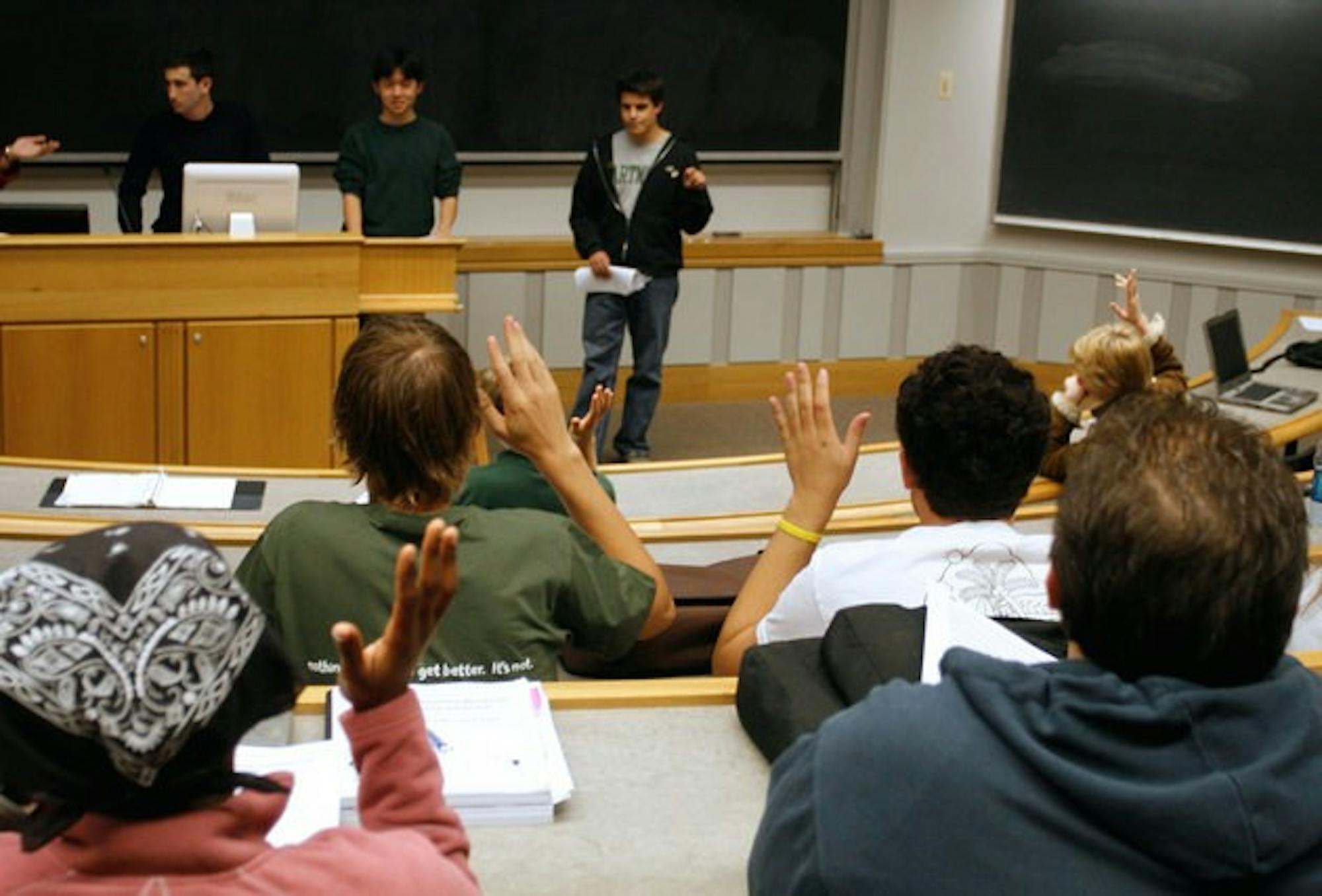When running for office last spring, current Student Body President Travis Green '08 told the students that the "issue of socioeconomic class silently divides our campus."
Several members of the Assembly interviewed by The Dartmouth said that while the issue as a whole has not been addressed, several programs have been initiated that begin to "focus on the issue."
These programs have come from the Diversity and Community Affairs committee, which has worked to address issues of socioeconomic class through involvement with the Hopkins Center's Class Divide Program and the Office of Pluralism and Leadership's Dartmouth Stories Project. The committee has also continued to support socialization among diverse groups by funding so-called "Pangea events," which are meant to promote cross-campus student interaction by soliciting involvement from disparate organizations.
The Assembly's Fall term began with the unveiling of a new constitution, which included significant changes to the president's power to allocate funds and the removal of official organizational representatives from Assembly membership. The revision was in part prompted by the attempted impeachment of former President Tim Andreadis '07 last year.
In Green's candidate statement last spring, he promised to "rebuild trust in SA through a series of short term, realistic plans." He outlined proposals for such smaller-scale projects before moving on to promise that "we will tackle larger issues that face campus. We will create a new mascot that is more than a goofy costume, centralize information and address the distortions that socioeconomic class causes."
The Assembly has focused on "concrete initiatives and projects that make tangible changes while addressing voiced student concerns," Smith said.
Many of Green's "short term, realistic plans" have been addressed through initiatives undertaken by the Assembly's various committees.
The Academic Affairs committee has expanded campus wide incentives to encourage students to contribute to the online course guide by raffling gift certificates to local businesses, according to Corey Chu '08, vice-president for the committee.
Academic Affairs is also advocating for undergraduate departments to make course syllabi available online. This term they created a SA Helpline, a BlitzMail account that students can contact with Dartmouth-related questions.
Such projects, which address day-to-day student concerns, are not limited to the Academic Affairs committee.
Student Services this term also passed legislation supporting a lecture capture initiative, which gives iPods to professors willing to record their lectures and examine the effects of the recordings on classroom dynamics. Kandler also said that in the Assembly's final meeting of the term on Tuesday, Student Services will introduce legislation that allows for students organizations to make purchases from Topside.
Vice President for Student Services Niel Kandler '09 said in an interview that his committee organized busing to New York over Thanksgiving, renewed the laptop voucher program that allows students to use a loaner laptop for free should their computer need repair, and continued a Dominos discount program in which student organizations can get 30 percent off pizza orders.
When asked if she had any specific goals for the Assembly in the winter term, Assembly spokeswoman Miesha Smith '09 said that "we have a great group of new '11s coming to meeting and events, so next term we're going to concentrate on getting upperclassman to come to SA. We want as many people as possible to come to SA and talk about what they want done. We're trying to reflect student's desires, which we can't do without their input."




